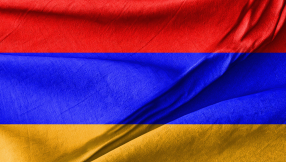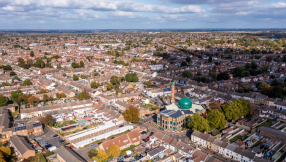Zimbabwe's MDC holds out on talks deal
Pressure has been building for a negotiated settlement to the dispute over Zimbabwe's June 27 run-off election, which President Robert Mugabe won by a landslide after his challenger, Morgan Tsvangirai, pulled out citing violence and intimidation against his supporters.
The post-election tension and uncertainty has worsened the country's already desperate economic situation, with inflation of well over 2 million percent, chronic shortages of basic food and other commodities, and unemployment at about 80 percent.
On Sunday both sides publicly appeared to be digging in on their positions.
Mugabe's government took aim at Western countries supporting sanctions against Harare's ruling elite by saying it would transfer ownership of Western-owned firms to locals and investors from "friendly countries", Zimbabwe's state-owned Sunday Mail newspaper said.
Mugabe's spokesman George Charamba confirmed the government's drive against Western firms, which it has in the past accused of creating false shortages of basic commodities and unnecessarily pushing up prices.
"We are anxious to understand the behaviour of corporate bodies and whether this (shortages and price hikes) owes to market imperatives or political obligation of the foreign investors," Charamba told the Sunday Mail.
For its part, the opposition Movement for Democratic Change (MDC) said on Sunday it would not sign a deal paving the way for talks with Mugabe's ruling ZANU-PF until South African President Thabo Mbeki, who has mediated the crisis, addressed its concerns over guidelines on substantive negotiations.
"I think in principle the decision is to sign the document. We are committed to the dialogue process," MDC spokesman George Sibotshiwe told Reuters.
"Our executive and council have already gone through the document and have raised their concerns with the facilitator ... the onus is on the facilitator to ensure that those things are sorted out in order for the signing to happen within the required time."
The MDC has refused to recognise Mugabe's victory, insisting Tsvangirai won the first vote outright in March, although official figures showed he did not get the absolute majority needed to avoid a run-off.
TSVANGIRAI READY TO SIGN?
MDC sources had said on Saturday Tsvangirai might sign a memorandum of understanding on talks as early as Monday.
Asked whether a signing was likely on Monday, Sibotshiwe replied: "I cannot answer that. (Mukoni) Ratshitanga, the spokesperson for President Mbeki, is the only person who can respond to that."
Ratshitanga said he was not aware of any plans for Mbeki to travel to Zimbabwe "any time soon".
An African diplomat close to the negotiations however told Reuters in Addis Ababa Tsvangirai was prepared to sign after meeting the African Union commission chairman in Harare over the weekend.
"After talks with African Union (AU) chairman Jean Ping, Tsvangirai has agreed to sign a memo of understanding, an agenda for talks and the ground rules," the diplomat said.
Kenyan Prime Minister Raila Odinga also said he expected the MDC and ZANU-PF to sign an agreement this week for talks to take place in South Africa, which he hoped would lead to a safe exit from power for Mugabe.
"Robert Mugabe is an embarrassment to the African continent," Odinga, whose own country experienced post-election violence this year, told BBC television. "He lost an election and refused to move on."
Mugabe, in power since independence from Britain in 1980, blames Zimbabwe's financial crisis on economic sabotage by Western enemies he says have supported the MDC as revenge for the government's seizure of white-owned farms for blacks.
Critics say Mbeki's mediation efforts have made no progress because his soft diplomacy is slanted in Mugabe's favour.
The MDC has said it welcomes Mbeki's proposal to form a team drawn from the AU, the Southern African Development Community and the United Nations to help him mediate the crisis.













